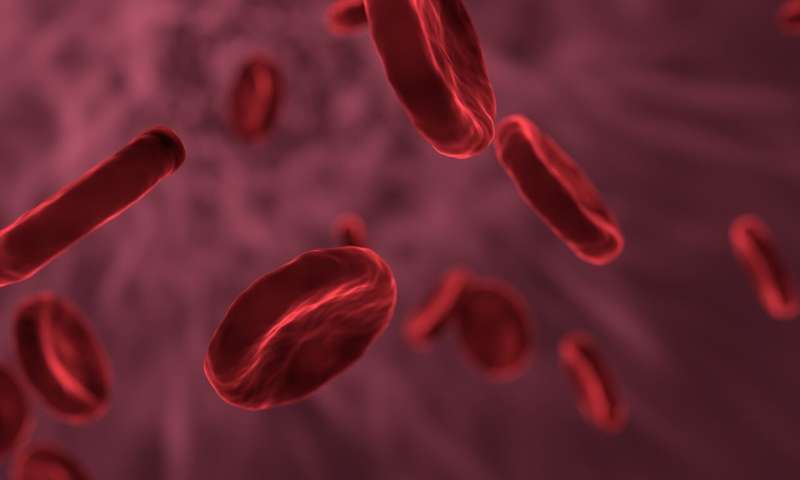This article has been reviewed according to Science X's editorial process and policies. Editors have highlighted the following attributes while ensuring the content's credibility:
fact-checked
peer-reviewed publication
trusted source
proofread
Vitamin B5 could help improve red blood cell production in people with myelodysplastic syndromes

Scientists from Barts Cancer Institute at Queen Mary University of London and the Francis Crick Institute, have uncovered why patients with a rare type of blood cancer suffer from ineffective red blood cell production, and how vitamin B5 could be combined with existing drugs to improve outcomes.
Myelodysplastic syndromes (MDS) are a type of blood cancer characterized by a stem cell disorder where the production of healthy red blood cells goes wrong. There are no curative treatments for these patients, but some medications do help to slow the progression of the disease.
People with this disease often go on to develop acute myeloid leukemia (AML) and around half of people become resistant to existing treatments for MDS within 18 months to two years of treatment. These patients are heavily reliant on red blood cell transfusions which can be painful and dangerous due to iron overload in the blood. This means it is important to uncover new ways to treat this disease and prevent the progression to leukemia.
In their study, published in Science Translational Medicine, the scientists analyzed blood samples from 42 people with MDS. They found that the enzyme COASY is critical in regulating red blood cell production in the bone marrow. Partial loss of the enzyme in MDS patients severely disrupts red blood cell production leading to anemia.
They then tested whether they could boost red blood cell production using treatments including vitamin B5 supplementation. Treatments with vitamin B5 or another metabolite, succinyl-CoA, increased the maturation of red blood cells.
Kevin Rouault-Pierre, Group Leader at Barts Cancer Institute and supervisor of the study, said, "Current treatments for MDS are often associated with reduced quality of life as well as the increased risk of progression to leukemia. Understanding the biology behind this stem cell disorder is key to unlocking new treatments of the future."
"Our next steps will be to further investigate how to boost red blood cell production and work towards testing new treatments in clinical trials."
Syed Mian, postdoctoral research fellow in the Crick's Haematopoietic Stem Cell Laboratory, who co-authored with Celine Philippe postdoctoral training fellow at Barts Cancer Institute, says, "Given our elderly population is increasing and age is the dominant risk factor for the development of MDS, we will start to see more and more people with this type of blood cancer.
"Anemia-related symptoms, such as chronic fatigue, are commonly reported in MDS and the current red blood cell transfusions, although essential, come with potential complications, and also require substantial human and financial resources. Therefore, it's essential that we find alternative ways to regulate long term red blood cell production in the in these patients. Our results may also potentially help with treatments of other diseases where patients commonly present with anemia."
More information: Syed Mian et al, Vitamin B5 and succinyl-CoA improve ineffective erythropoiesis in SF3B1 mutated myelodysplasia, Science Translational Medicine (2023). DOI: 10.1126/scitranslmed.abn5135. www.science.org/doi/10.1126/scitranslmed.abn5135




















